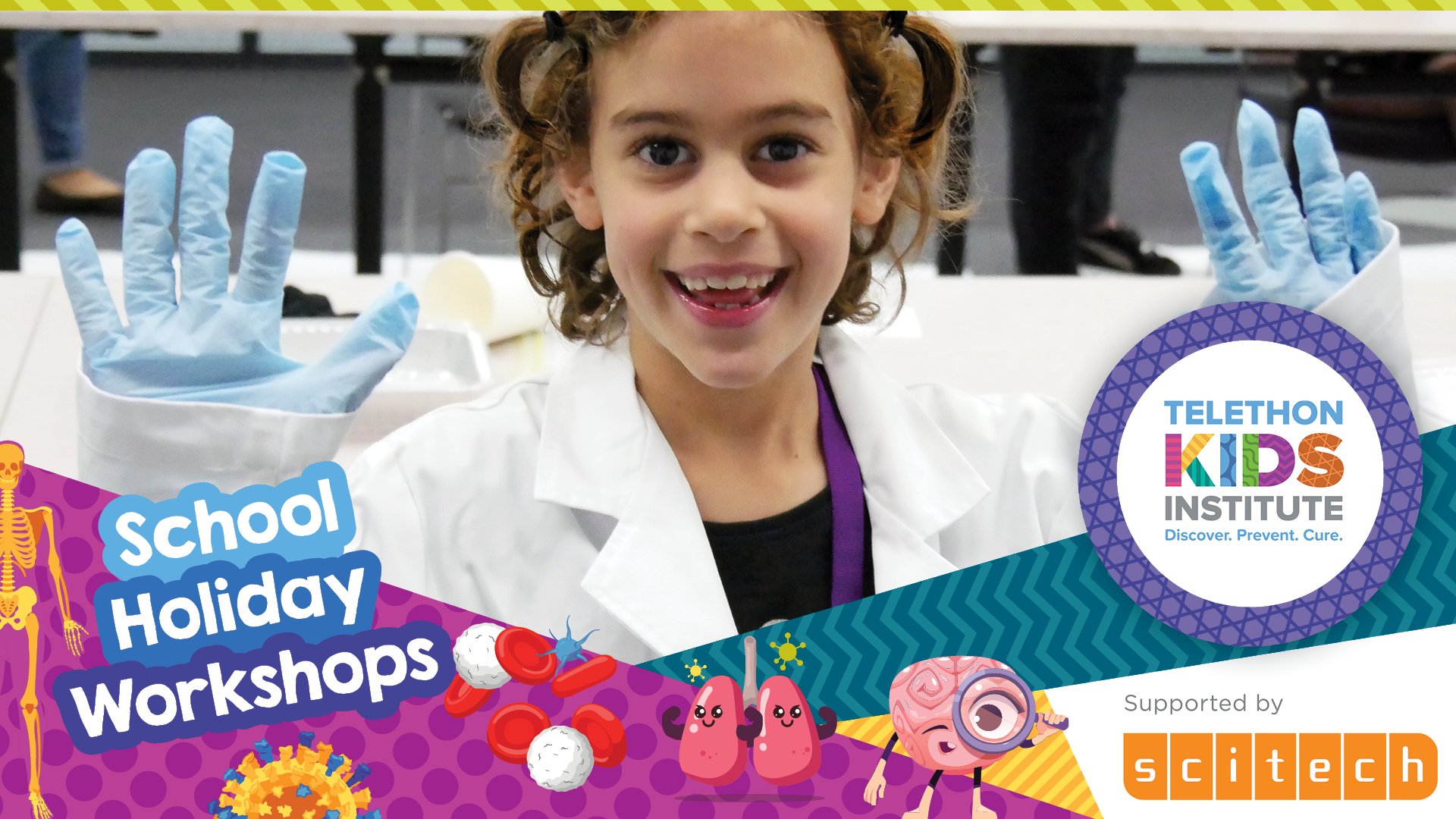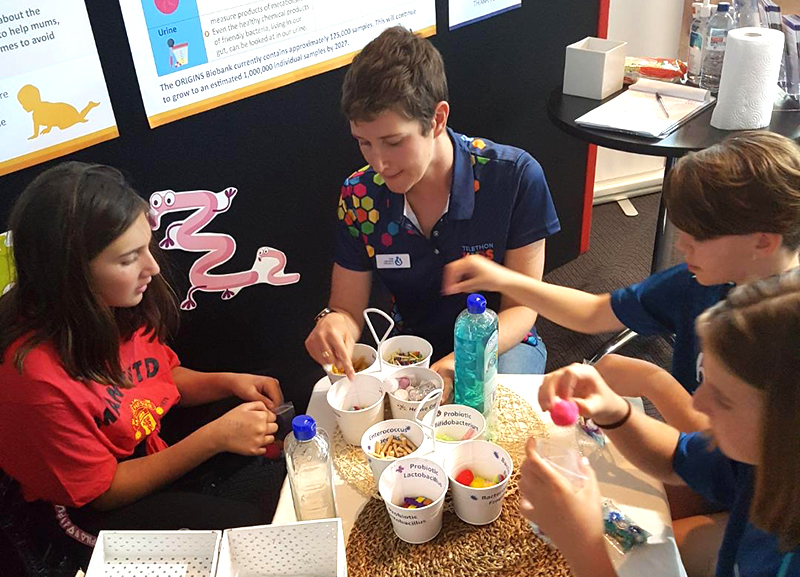Search

News & Events
Free excursions to The KidsRegister your interest to participate in a FREE pilot excursion for our brand-new program, Microscopic World!

News & Events
School holiday workshops at ScitechEverything you need to know to book tickets to our upcoming school holiday workshops in April held at Scitech!

Keep up to date with all things Discovery Centre related by signing up to the Discovery Club. You’ll be able to log in with all your information at the centre!

Make your very own unique microbiome using a range of textured items designed to be squeezed and squished.
Meet the ASAVI team

The Wal-yan Respiratory Research Centre offers a broad range of outpatient and portable tests for those affected by chronic respiratory conditions.

Portable equipment is available to enable bedside and community-led research in rural and remote communities, including Indigenous communities where children are disproportionately affected by chronic respiratory conditions.

One way the Wal-yan Respiratory Research Centre provides the opportunity for consumers and community members to contribute to our research is through participation in one of our eight community reference groups.

The discoveries that have set our research apart primarily relate to the factors early in life that cause life-long respiratory problems.
